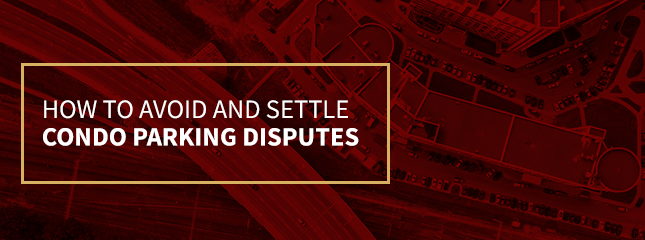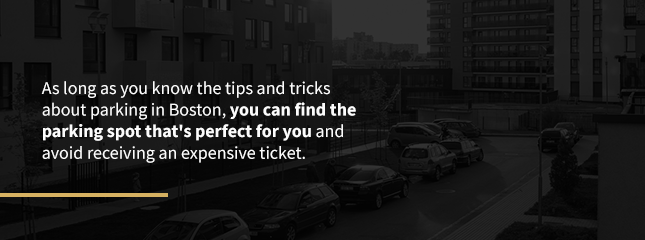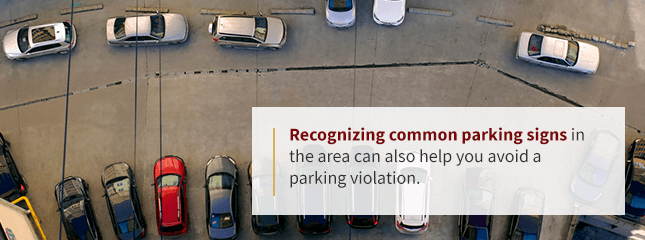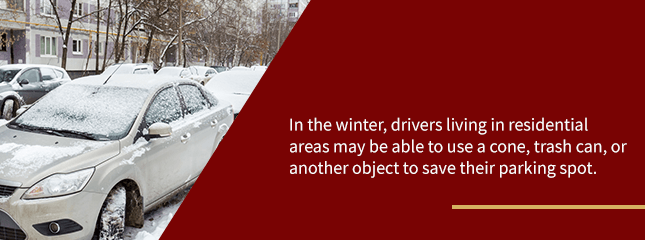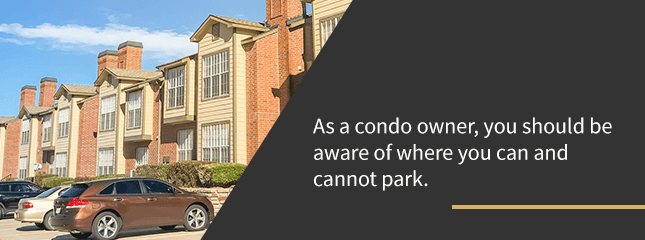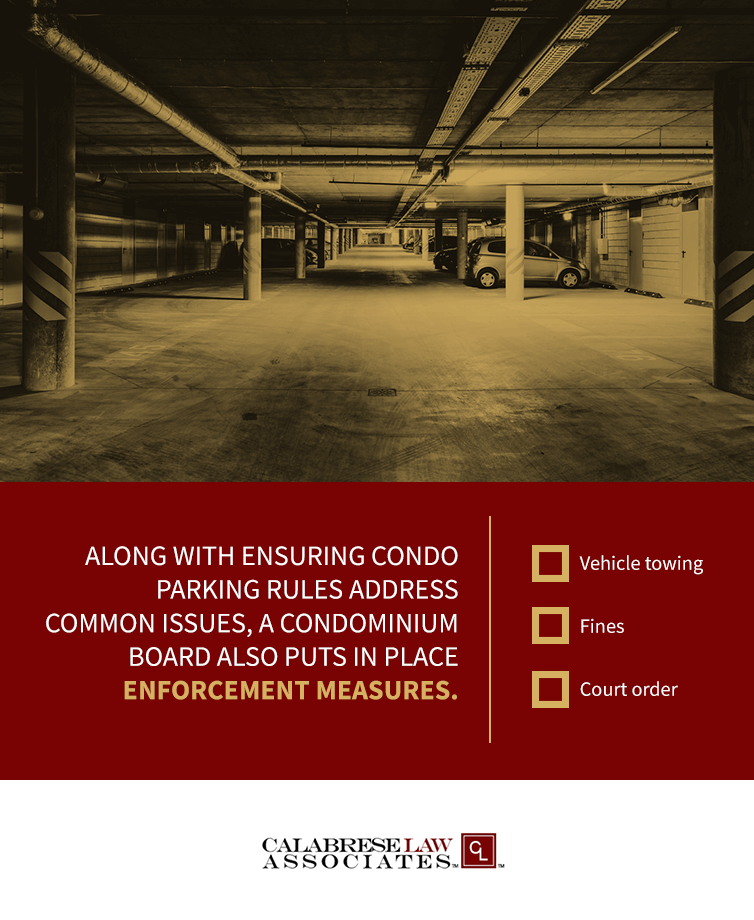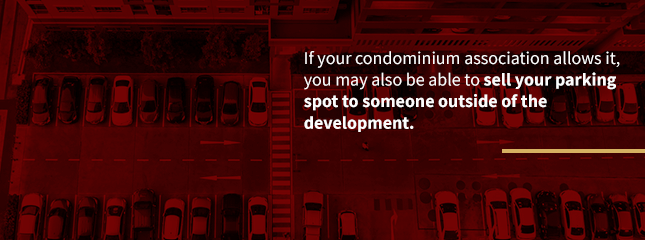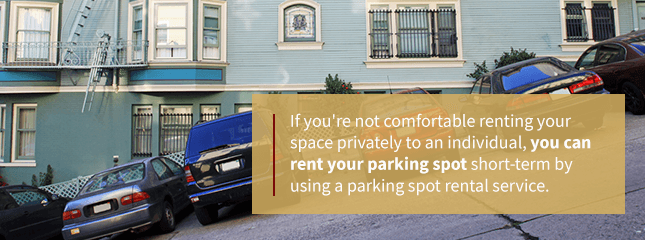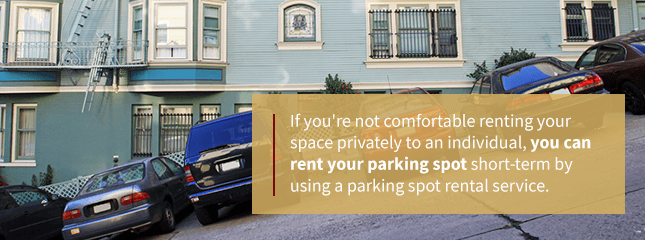Condo parking restrictions and disputes are some of the most common issues that property managers and condominium owners have to deal with. In crowded urban areas, parking spaces are hard to come by, and issues can quickly arise when residents don’t park in their designated spaces. Among condominiums in suburban areas, disputes tend to arise due to residents parking inoperable vehicles, commercial vehicles, or boats in their driveway or on the street.
Get Assistance with a Parking Dispute Now
As a condo owner or manager, it’s important for you to know what the parking rules and regulations are and what action you can take if you do receive a ticket.
What Are the Parking Laws in MA?
Boston is built for public transportation, making it a very walkable city. However, this can spell bad news for drivers in the Greater Boston Area, as a highly walkable city also means parking spaces are in high demand. This demand has led to time-restricted street parking and high rates for hourly parking. But don’t let this deter you from driving in the city — as long as you know the tips and tricks about parking in Boston, you can find the parking spot that’s perfect for you and avoid receiving an expensive ticket.
Parking Laws and Regulations
To avoid a parking violation, be sure to know and follow these laws and regulations in Boston:
- Maximum two-hour parking limit for most metered parking spaces.
- Meters cannot be fed all day. A meter with a two-hour limit is limited to just two hours. Staying longer could get you ticketed.
- Most meters are active from 8 a.m. to 8 p.m., Monday through Saturday.
- Pay for a meter using a card, cash, coins, or the app for the city.
- The Boston Parking Ban prohibits street parking on many streets in the winter to give emergency assistance vehicles and snowplows better road access. If you park on an emergency snow route, your vehicle will be towed, and you will be ticketed. Park at least 20 feet from intersections and a foot from curbs.
- Parking in residential neighborhoods is usually available only to residents. You need a permit to park in these residential neighborhoods, so if you don’t live there, you can’t park there.
- Street parking lanes are converted into an additional travel lane on some major streets during rush hour to allow for better traffic flow. Read parking signs, so you don’t leave your car in one of these street parking lanes — or your vehicle will be towed.
- When parking in a commercial area, keep in mind that Boston runs a street cleaning program at night all year round. This program keeps Boston’s streets free of litter, and it also means you’ll need to move your vehicle beforehand.
- Street parking is restricted during certain days due to city construction and street cleaning schedules. Be sure to check street cleaning maps to learn this information.
- Boston Police Special Event signs prohibit parking during special events.
- Broken meters don’t mean you can park for free all day. In fact, in Boston, you can only park in a space with a broken meter for an hour.
- To find a new spot after your two-hour limit, you’ll have to move to a different city block rather than parking across the street or rolling into the next open space.
- During a snow emergency, you may park in a participating garage or lot. You are required to remove the vehicle within two hours of the emergency ban being lifted.
- Free parking is offered on certain holidays in Boston.
Restricted streets for snow emergencies include:
- State-owned roads
- Brighton
- Allston
- Charlestown
- Back Bay
- Dorchester
- Beacon Hill
- Fenway-Kenmore
- Jamaica Plain
- Roslindale
- Mattapan
- Roxbury
- Mission Hill
- West Roxbury
- Chinatown-Leather District
- North End-West End
- Downtown
- South End
- Hyde Park
- East Boston
- South Boston
Discounted lots and garages for snow emergencies can be found in:
- Brighton
- Allston
- Back Bay
- West Roxbury
- Bay Village
- South End
- Beacon Hill
- South Boston
- Charlestown
- Roxbury
- Chinatown
- Roslindale
- Dorchester
- Hyde Park
- North End-West End
- Downtown
- Mattapan
- East Boston
- Jamaica Plain
- Fenway
- Kenmore
Keep these regulations in mind, so you can avoid being ticketed and towed.
Common Parking Signs
Recognizing common parking signs in the area can also help you avoid parking violations. Common parking signs include:
- Resident permit parking only: This sign means only those with residential parking stickers may park here. Find another place to park if you don’t live in this neighborhood.
- No stopping any time: This sign means you cannot stop for a drop-off or pick up.
- 2-hour parking: This sign means you can park here for a maximum of two hours. Find a different spot if you want to park for a longer amount of time.
- No standing any time: This sign means you can only do a quick drop off or pick up.
- Street cleaning: This sign provides information about the days and hours that street parking is prohibited to allow for street cleaning.
When parking in the Greater Boston area, pay careful attention to parking signs, so you can avoid a parking violation.
Saving Parking Spaces
If open parking spaces are difficult to find in the area, can you save your spot with a cone or other object? In the winter, drivers living in residential areas may be able to use a cone, trash can, or another object to save their parking spot. After all, you don’t want to go through all the work of shoveling out a spot just to find it taken when you return. This practice is only legal in specific circumstances, however:
- When the city of Boston is in a snow emergency, you can use a space saver.
- You can use a space saver for 48 hours after an emergency ends. After 48 hours, the vehicle must be removed from the street.
- In the South End, space savers are not allowed.
To help you with parking in the Greater Boston Area, download a parking app specific to the area. Even if you forget a rule about street parking in Boston, the app will store all the laws for you. Using the app, you can also find out beforehand how much every hour of parking your vehicle will cost, and you can receive notifications about how long you have until your meter expires.
Condo Parking Rules and Regulations
Enforcing condominium parking rules and regulations is a common problem for property managers and condo associations. When condo owners fail to abide by condo rules and regulations, issues arise.
Condo Parking Issues That Should Be Addressed in Parking Regulations
Some of the common issues that condo parking space rules and regulations should address include:
- Is a parking spot assigned to a certain unit, or is parking first-come, first-serve?
- How many vehicles can a co-owner have?
- Are the parking areas that are designated for co-owners, vendors, and guests defined clearly and adequately?
- Are government standards followed in terms of handicap parking?
- Are there time restrictions for parking in certain areas?
- Do the condominium rules and regulations adequately define a commercial vehicle?
- Can the following vehicles be stored or parked in the condo development: boats, boat trailers, commercial vehicles, watercraft, buses, motor homes, camping trailers, recreational vehicles, snowmobiles, off-road vehicles, non-motorized vehicles, and all-terrain vehicles? If so, where can these vehicles be parked or stored?
- Where can non-operational vehicles be stored?
Before moving in, ensure you know and understand all the condo parking rules and restrictions. For example, as a condo owner, you should be aware of where you can and cannot park.
The developer of a condominium usually designates parking areas as limited common elements or general common elements:
- General common elements: These are designated areas where co-owners can park.
- Limited common elements: These are designated areas where only certain co-owners can park or residents in a certain unit can park.
The difference between the two is exclusivity. Additionally, a developer can also include a garage or driveway for condominium units.
Common Condo Law Issues in MA
Common types of condo law issues in Massachusetts and the Greater Boston Area include:
- Alleged violations of regulations and rules
- Civil litigation
- Collection and nonpayment issues
- Condo association voting rights disputes
- Construction disputes and contracts
- Disputes with a homeowners’ association
- Health or municipal complaints
- Illegal pet violations
- Insurance disputes
- Land development and use disputes
- Lien issues
- Material failures and recalls
- Parking disputes
- Permits
- Restoration issues
- Tax abatement
- Zoning and environmental issues
Condo parking issues are among the most common that condo co-owners and condo associations deal with on a regular basis. If you need legal assistance to challenge a dispute or a violation, contact our office at Calabrese Law Associates.
Condo Parking Enforcement
How do condo associations enforce condo parking or enforce condo rules and bylaws? What about condo visitor parking enforcement? Are condos’ parking tickets enforceable?
Along with ensuring condo parking rules address common issues, a condominium board also puts in place enforcement measures. Often, these enforcement measures manifest in the following:
- Vehicle towing: If you improperly park your vehicle, your condo association may sticker and tow your vehicle. You’ll receive a notice that your vehicle was towed and likely have to pay for the cost of towing. If you illegally park on a public street, your condo association may instead contact the police to issue you a ticket or tow your vehicle.
- Fines: If you violate the parking rules and restrictions for the condominium development, you may receive a notice and have to pay a fine. Generally, you’ll first receive an initial warning, and each subsequent violation will often incur a higher fine.
- Court order: In a situation where a fine or towing is deemed to be unavailable or ineffective — such as if this is a recurring offense — then your condo association may choose to obtain a court order that requires you to comply with the parking rules of the condo development. If you continue to violate the parking rules, you will be held in contempt.
Violating condo parking rules and regulations can have serious, costly consequences. By ensuring you are aware of and thoroughly understand the rules and regulations set by the condo association of your condo development, you can avoid accidentally violating these rules and dealing with the repercussions.
Can I Sell My Parking Spot?
Do you want to sell your parking spot to another condo owner? Maybe you’ve decided you no longer want or need a vehicle. Maybe between car payments, auto insurance, maintenance, and parking tickets, the cost of owning a vehicle has become too expensive for you, or maybe you’re tired of getting stuck in Boston traffic. Whatever the reason, you may decide you no longer need your reserved condominium parking space and want to sell it to someone else.
Can Condo Owners Sell Their Parking Spots?
Most condominium owners don’t legally own their parking spots. Instead, these parking spaces are assigned to particular units, giving the unit owner many of the rights related to ownership, such as preventing other drivers from parking in their space. Legally, however, the condo owner doesn’t own the parking space or the title to it.
To reallocate limited common elements, such as parking spaces, specific requirements must be followed according to the condominium declaration. In some condo declarations, both unit owners may be required to get approved by their respective mortgage lenders before a transfer can be effective.
While owners may reach a private agreement amongst themselves, the declaration requirements must be followed, and the declaration may need to be amended before the change in assignment of the parking space is officially recorded in the county property records. Condo associations must follow guidelines strictly to avoid confusion in the future if you move and sell your condo to someone else.
If your condominium association allows it, you may also be able to sell your parking spot to someone outside of the development. For many condo owners, however, this is not a likely possibility, as most condo associations prefer to keep the parking spaces exclusive to condo owners.
Selling Parking Spots Outside of a Condo Development
If you own a spot in a garage or a lot, you’ll have an even better chance of selling your parking space. In particularly dense areas, you can sell your parking spot at a premium, since parking is in high demand in these areas.
If you’re allowed to sell your garage, lot, or condo parking spot, list it on Craiglist or social media pages to sell it for the highest price.
Additional Condo Parking Solutions
If you aren’t allowed to sell your condo parking spot, you may be able to rent it out. As with selling, you’ll need to ensure your condo association allows parking space rentals. If so, you can elect to rent your parking space to someone long-term. Preferably, you’ll rent your space to someone you know will pay regularly and on time, such as a friend or relative you trust.
If you’re not comfortable renting your space privately to an individual, you can rent your parking spot short-term by using a parking spot rental service. These services are essentially Airbnb for parking spots. If you live near an area that often hosts special events, you may want to consider short-term rentals for your parking space.
Even if you can’t sell your condo parking space, you may have other options for making some extra cash off of your available parking spot, but be sure to check with your condo association before attempting to sell or rent your parking spot.
How to Dispute a Parking Ticket and Other Violations
If you have been ticketed for improperly parking or for another violation, you may want to dispute the ticket. To dispute a ticket, you may have a couple of options:
1. Appeal Online
You can appeal your ticket to the city online. To do so, you’ll need to provide the following information:
- Your name
- Your mailing address
- Your ticket number
- What your dispute is
- Your plate number
- Your registration number
- The state in which your vehicle is registered
- Any supporting evidence you may have
Fill out a complaint form, and you will receive an email receipt. In seven to 10 business days, you should receive the city’s decision on your case.
If your appeal is denied, you must either request a hearing or pay your ticket in 10 days. To pay your ticket, you can:
- Pay online: You can pay your ticket online or with the Boston Paytix app.
- Pay over the phone: Call and pay over the phone with your debit or credit card from Discover, Visa, Mastercard, or American Express.
- Pay in person: Pay your ticket in person with cash, a money order, a cashier’s check, a debit card or a credit card from Discover, Visa, Mastercard, or American Express.
- Pay by mail: You can pay by mail with a money order or a personal check.
If you don’t pay for your ticket on time, you will also have to pay an additional penalty.
2. Hire an Attorney
If you want assistance with disputing your ticket or condo parking violation, hire an attorney from Calabrese Law Associates. Condominium law in Massachusetts can be complex, but our condo law attorneys can bring knowledge, expertise, advocacy, and practical solutions to your case.
Because we work to provide you with the positive results you’re seeking, we take the time necessary to thoroughly understand the issues you’re facing. Along with condominium law, our attorneys focus on transactional law and real estate law. Our clients have included condo unit owners, contractors, and developers in a variety of disputes, such as condominium disputes, construction disputes, and contract disputes.
A condominium law attorney can represent your interests and help you understand your rights. Our experienced attorneys are dedicated to assisting our clients.
Condo law disputes can be difficult and uncomfortable to navigate on your own, as these disputes involve parties you may see regularly or a condo association you rely on for repairs in your home. By working with a condo law attorney, you can reduce the stress you’re facing and leave engaging in the dispute to your attorney. Get in touch with our lawyers at Calabrese Law Associates today.
Contact Calabrese Law Associates for Help With a Condo Dispute in the Greater Boston Area
Do you need legal assistance with a condo dispute? At Calabrese Law Associates, we deliver legal representation for a reasonable fee. Our attorneys aim to be accessible to our clients, so we make sure to return their phone calls in a timely manner.
For help with your condo dispute in the Greater Boston Area, contact us at Calabrese Law Associates today.
*This publication and its contents are not to be construed as legal advice nor a recommendation to you as to how to proceed. Please consult with a local licensed attorney directly before taking any action that could have legal consequences. This publication and its content do not create an attorney-client relationship and are being provided for general informational purposes only.
*Attorney Advertising. Prior results do not guarantee a similar outcome.



